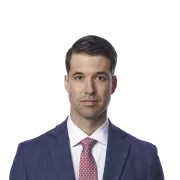
We fight for wrongful death victims.
When wrongful death leaves families emotionally shattered and financially burdened, we help fight for justice.
Start your claimThe attorney shown above may not be licensed in your state. To find an attorney licensed in your area, please visit our attorney page.

The attorney shown above may not be licensed in your state. To find an attorney licensed in your area, please visit our attorney page.
Meet Our Wrongful Death Attorneys
We understand the profound impact of wrongful death and are committed to guiding you through the legal process with compassion and dedication.
The attorneys shown in these photos may not be licensed in your state. To find an attorney licensed in your area, please visit our attorney page.
Morgan & Morgan's Wrongful Death Lawyers Make All the Difference
Don’t Be Lowballed by an Insurance Company
Covering All Types of Wrongful Death Cases
Proven Experience, Powerful Results
Legal Help with No Upfront Costs
Results may vary depending on your particular facts and legal circumstances.
Our Results
Results may vary depending on your particular facts and legal circumstances.
Different Types of Wrongful Death Claims
Car Crashes
Workplace Incidents
Medical Malpractice
Defective Products
Nursing Home Abuse and Neglect
Premises Liability
In Their Words
Based on select nationwide reviews.
Wrongful death cases need three things.
Proof of negligence
Medical and legal documentation
Demonstrable damages
The specific requirements for proving wrongful death can vary depending on the laws of your jurisdiction. We recommend consulting an experienced attorney to understand how these laws apply to your case.
Fighting For the People
Backed by America’s Largest Injury Law Firm.
$30 Billion
Recovered for clients
nationwide700,000+
Clients and families
served1,000+
Attorneys across
the country1
Click may change your life

The attorney featured above is licensed in Florida. For a full list of attorneys in your state please visit our attorney page.
Results may vary depending on your particular facts and legal circumstances.
Possible Compensation in Wrongful Death Cases
Medical Expenses
Funeral and Burial Costs
Loss of Past and Future Wages
Loss of Companionship and Emotional Suffering
Pain and Suffering of the Deceased
Punitive Damages
Learn More
Injured and not sure what to do next?
We'll guide you through everything you need to know.
What is a wrongful death claim? What constitutes a wrongful death?
The unnecessary or accidental death of a loved one can be devastating to the surviving family members. When this loss is due to the negligence of another, surviving families have legal rights and options to seek justice. The most common action to take is to file a wrongful death lawsuit, usually with the aid of a personal injury attorney.
Wrongful death claims are civil actions made by the survivors of an individual who has passed away due to the negligence or misconduct of another. Typically, this includes spouses, children, and parents of the deceased, but it can vary depending on state laws. In these cases, the law allows the family members of the decedent to file a wrongful death suit seeking monetary damages. The wrongful death action is designed to provide compensation for beneficiaries who depended upon the deceased for financial and emotional support. Wrongful death compensation from a wrongful death settlement or lawsuit can also be used to cover outstanding medical bills and other associated expenses.
Wrongful death occurs when negligence, recklessness, or other behavior results in a fatality. Negligence refers to the failure of an individual to behave as a reasonably prudent person would have acted under similar circumstances. To establish that a wrongful death occurred, an attorney must prove that the individual had a duty of care to the deceased, their act or omission breached that standard of care, their wrongful actions were the proximate (direct) cause of the injury or death of the decedent, and damages resulted.
What are the common causes of wrongful death cases?
Wrongful death cases arise when a person dies due to the negligence, recklessness, or other actions of another party. Some of the most common causes include:
- Car Accidents: Fatalities caused by negligent drivers, including those who are speeding, distracted, intoxicated, or otherwise reckless.
- Medical Malpractice: Deaths resulting from misdiagnosis, surgical errors, medication mistakes, birth injuries, or failure to provide proper treatment.
- Workplace Accidents: Fatal incidents in dangerous work environments, such as construction sites, factories, or industrial settings, due to unsafe conditions, lack of safety measures, or equipment malfunctions.
- Defective Products: Deaths caused by dangerous or malfunctioning products, such as faulty auto parts, unsafe medications, or hazardous consumer goods.
- Slip and Fall Accidents: Fatal falls due to unsafe conditions in workplaces, public spaces, or private properties, often due to poor maintenance or negligence.
- Nursing Home Abuse and Neglect: Wrongful deaths due to inadequate care, neglect, or abuse in assisted living facilities.
- Criminal Acts: Homicides or violent assaults that lead to wrongful death claims in civil court, separate from criminal charges.
- Pedestrian and Bicycle Accidents: Fatal accidents involving pedestrians or cyclists struck by negligent or reckless drivers.
- Aviation and Train Accidents: Deaths resulting from airplane crashes, train derailments, or other transit-related failures.
- Drowning Accidents: Fatal incidents in pools, lakes, or other bodies of water due to a lack of safety measures, poor supervision, or defective equipment.
Each case is unique, and surviving family members may be eligible to seek compensation for damages such as medical expenses, funeral costs, lost income, and emotional suffering.
What should I do if I suspect a wrongful death?
If you suspect a wrongful death, it’s important to take immediate action to protect your rights and build a strong case. Here are the key steps you should take:
1. Obtain a Death Certificate
The official death certificate will document the cause of death, which may be important for your case.
2. Gather Evidence
Collect any medical records, accident reports, photographs, witness statements, or other relevant documentation that could support your claim. If the death occurred in a workplace or medical setting, request records related to procedures, treatments, or safety violations.
3. Contact Morgan & Morgan
A wrongful death attorney can evaluate your case and guide you on the best course of action. They can also help determine liability and the compensation you may be entitled to.
4. Avoid Speaking With Insurance Companies Alone
Insurance companies may attempt to minimize your claim. Consult with your attorney before providing any statements.
5. Determine Who Can File a Claim
Typically, close family members (spouse, children, parents) or the deceased’s estate representative can file a wrongful death lawsuit.
6. Be Aware of the Statute of Limitations
Each state has a specific deadline for filing a wrongful death claim. Missing this deadline could prevent you from pursuing legal action.
7. Consider the Financial and Emotional Impact
Wrongful death claims can help recover damages for medical expenses, funeral costs, lost income, and emotional suffering. An attorney can help calculate the full extent of losses.
How do I know if I have a valid wrongful death case?
Determining whether you have a valid wrongful death case depends on several key legal factors. Here’s what you should consider:
1. Was There Negligence or Misconduct?
To have a wrongful death case, you must prove that someone else's negligence, recklessness, or other actions caused the death. This can include:
- Car accidents caused by a reckless driver
- Medical malpractice due to a doctor’s error
- Unsafe workplace conditions leading to a fatal accident
- Criminal acts, such as assault or homicide
2. Did the Death Result From That Negligence?
There must be a direct link between the responsible party’s actions (or failure to act) and the death. For example, if a doctor misdiagnosed a treatable illness and the patient died as a result, that could establish a valid claim.
3. Do You Have Legal Standing?
Only certain people can file a wrongful death lawsuit, which typically includes:
- Spouses or life partners
- Children of the deceased
- Parents (if the deceased was a minor or had no spouse/children)
- Estate representatives acting on behalf of beneficiaries
4. Are There Recoverable Damages?
A valid case must include measurable damages, such as:
- Medical expenses incurred before death
- Funeral and burial costs
- Lost wages and future earnings
- Loss of companionship and emotional suffering
5. Is It Within the Statute of Limitations?
Each state has a deadline to file a wrongful death claim. If too much time has passed, you may lose the right to sue.
How does a wrongful death lawsuit differ from a criminal case?
A wrongful death lawsuit and a criminal case may arise from the same incident, but they are fundamentally different in purpose, burden of proof, and potential outcomes.
Purpose
Wrongful Death Lawsuit (Civil Case):
Filed by surviving family members or the deceased’s estate to seek financial compensation for damages (medical bills, funeral costs, lost wages, emotional suffering). The goal is monetary compensation, not punishment.Criminal Case:
Prosecuted by the government (district attorney) to hold the responsible party accountable for breaking the law (homicide, manslaughter). The goal is punishment, which can include jail time, fines, or probation.Burden of Proof
Wrongful Death Lawsuit:
Plaintiffs must prove the defendant’s negligence or misconduct by a preponderance of the evidence (more likely than not). This is a lower standard of proof than in criminal cases.Criminal Case:
The prosecution must prove guilt beyond a reasonable doubt, which is a much higher standard.Who Files the Case?
Wrongful Death Lawsuit:
Filed by the victim’s family or estate.
Criminal Case:
Brought by the state (government prosecutors).
Possible Outcomes
Wrongful Death Lawsuit: The defendant may be ordered to pay financial damages but does not face jail or criminal penalties.
Criminal Case: If convicted, the defendant may face prison time, fines, probation, or other penalties.
Can Both Cases Happen Simultaneously?
Yes. A person can face both civil and criminal cases for the same event. For example, O.J. Simpson was acquitted in his criminal trial for murder but was later found liable in a wrongful death lawsuit and ordered to pay millions to the victims’ families.
What is the difference between wrongful death lawsuits and survival actions?
A wrongful death lawsuit and a survival action are both legal claims that arise when someone dies due to another party’s negligence, but they serve different purposes. A wrongful death lawsuit is meant to compensate the deceased person’s surviving family members for their losses. This can include funeral and burial costs, the loss of financial support, and the emotional toll caused by the death. It focuses on the impact the loss has on those left behind.
On the other hand, a survival action is filed by the deceased’s estate and seeks damages for the suffering and financial losses the person experienced before passing. If the deceased endured medical treatment, pain, or lost wages between the time of injury and death, the survival action ensures those damages are accounted for. Instead of focusing on the family’s loss, it essentially continues the legal claim the deceased would have had if they had survived.
The key difference is timing—wrongful death claims address losses that occur after a person’s death, while survival actions cover what the deceased went through before passing. In many cases, both claims can be pursued together to fully compensate for the financial and emotional consequences of the loss.
Who can file a wrongful death lawsuit?
A wrongful death lawsuit is typically filed by the personal representative (executor) of the deceased person’s estate on behalf of surviving family members. However, the specific rules vary by state. Generally, the following individuals may have the right to file:
Immediate Family Members
- Spouse: Usually has the first right to file.
- Children: Both minor and adult children can typically file.
- Parents of a Minor Child: If the deceased was a minor, parents can usually bring a claim.
Other Family Members (Varies by State)
- Parents of an Adult Child: Some states allow parents to file if their adult child dies without a spouse or children.
- Siblings: In certain cases, siblings may be allowed to file.
Financial Dependents & Domestic Partners
- Unmarried Partners: Some states recognize claims from domestic partners or life partners.
- Anyone Financially Dependent on the Deceased: This can include stepchildren, dependents, or other individuals who relied on the deceased for financial support.
The Estate Representative
If the wrongful death claim results in compensation, it may be distributed to surviving family members according to state laws of inheritance.
Other Possible Claimants
Some states extend rights to distant relatives or even legal guardians, depending on the circumstances.
If you’re unsure whether you qualify to file a wrongful death lawsuit, consulting with a wrongful death attorney can help clarify your legal options.
Can multiple family members file a wrongful death lawsuit?
In most cases, only one wrongful death lawsuit can be filed on behalf of all eligible family members. Typically, the personal representative (executor) of the deceased’s estate files the lawsuit, and any compensation awarded is distributed among the beneficiaries according to state laws.
While only one wrongful death claim is typically filed, multiple family members may be included as beneficiaries and receive a share of any compensation.
Some states allow certain family members (such as spouses, children, or parents) to file individually if an agreement can’t be reached on who should bring the claim.
If multiple family members want to file separately, courts may consolidate the claims into one lawsuit.
What types of compensation are available in wrongful death cases?
In a wrongful death case, compensation (or damages) is typically awarded to cover the financial and emotional losses suffered by the deceased’s surviving family members. The types of compensation available vary by state but generally fall into three categories: economic, non-economic, and punitive damages.
Economic Damages (Financial Losses)
These cover measurable financial losses resulting from the death, including:
- Medical Expenses: Costs of medical treatment related to the deceased’s final injury or illness.
- Funeral & Burial Costs: Expenses for the funeral, cremation, or burial services.
- Lost Income & Benefits: Compensation for the wages the deceased would have earned, including lost benefits (health insurance, retirement contributions).
- Loss of Services & Support: The value of household contributions (e.g., childcare, home maintenance) the deceased provided.
Non-Economic Damages (Emotional and Intangible Losses)
These address the emotional and psychological impact of the loss, such as:
- Pain & Suffering: Emotional distress suffered by surviving family members.
- Loss of Companionship & Consortium: Compensation for the loss of love, companionship, and guidance (often claimed by spouses or children).
- Loss of Parental Guidance: Damages awarded to children for the loss of a parent’s guidance and support.
Punitive Damages (Punishment for Negligence or Misconduct)
Punitive damages are awarded in cases where the defendant’s actions were especially reckless, malicious, or intentional.
These damages are meant to punish the wrongdoer and deter similar behavior in the future. Not all states allow punitive damages in wrongful death cases, however.
How do I prove liability in a wrongful death case?
Proving liability in a wrongful death case involves demonstrating that the defendant's actions (or failure to act) directly caused the death of the deceased. The process can be complex, but the core elements typically include showing negligence, intentional misconduct, or recklessness.
1. Establish Negligence (or Other Legal Theories)
In most wrongful death cases, the plaintiff (usually the deceased's family or estate representative) must prove negligence or other misconduct on the part of the defendant.
How do you prove negligence in a wrongful death claim? To prove negligence, you must show that the defendant failed to exercise reasonable care, leading to the death. The basic elements include:
- Duty of Care: The defendant owed a legal duty to the deceased. For example, drivers have a duty to drive safely, and doctors have a duty to provide competent medical care.
- Breach of Duty: The defendant breached that duty by acting (or failing to act) in a way that a reasonable person would not. For example, a driver speeding through a red light breaches their duty of care to other drivers and pedestrians.
- Causation: The defendant's breach directly caused the death. You must prove that the defendant’s actions were a proximate cause of the fatal injury or illness.
- Damages: The death resulted in quantifiable damages (such as loss of income, funeral expenses, or emotional suffering).
Intentional Misconduct (Murder or Assault)
If the defendant's actions were intentional or malicious (such as in cases of murder or assault), the plaintiff must prove:
- Intent: The defendant meant to cause harm or acted with reckless disregard for the deceased's safety.
- Causation: The intentional conduct directly led to the death.
2. Gather Evidence to Prove Liability
Proving liability often requires various forms of evidence, including:
- Medical Records: These show the cause of death and whether it was related to the defendant’s actions (an injury from a car accident, medical malpractice, or workplace accident).
- Eyewitness Testimony: Statements from people who witnessed the incident can help establish what happened.
- Expert Testimony: Experts, such as doctors, accident reconstruction specialists, or economists, may be called to testify on medical issues, the cause of death, or the financial impact of the loss.
- Accident Reports: Police or accident reports (from a car crash) can help establish liability, especially if they show the defendant’s wrongdoing or negligence.
- Photographs or Video: Evidence like surveillance footage, photos of the scene, or video recordings can be powerful in proving the cause of the fatal incident.
3. Prove Proximate Cause
You must show that the defendant's actions were the proximate cause of the death, meaning the actions were a substantial factor in causing the fatal incident. This involves:
- Showing that the defendant’s conduct directly led to the death.
- Demonstrating that no other intervening cause was responsible for the death.
- Proving that the injuries sustained were significant enough to result in the fatality (fatal injuries from a car accident, defective product, or medical error).
4. Defend Against Possible Defenses
The defendant may attempt to show that:
- Contributory negligence: The deceased was partially at fault for their own death.
- Assumption of risk: The deceased knowingly put themselves in a dangerous situation.
- Comparative negligence: The deceased was partially responsible for the accident, and this should reduce the damages.
You will need to counter these defenses with evidence showing that the defendant was primarily at fault.
5. Legal Representation
A wrongful death attorney at Morgan & Morgan can help with gathering evidence, interviewing witnesses, and presenting expert testimony to prove the defendant's liability. Our experienced attorneys are skilled at navigating complex legal issues and can help ensure that your family gets fair compensation.
What is the role of an expert witness in a wrongful death case?
In a wrongful death case, an expert witness helps explain complex issues that are outside the common knowledge of the jury. Their role is to provide specialized knowledge that strengthens the case by supporting the plaintiff’s claims or refuting the defendant’s arguments. Expert witnesses are usually specialists in areas related to the case, such as medicine, accident reconstruction, or economics. For example, a medical expert may testify about the cause of death, the severity of injuries, and how the defendant’s actions contributed to the fatal outcome. Similarly, an accident reconstruction expert might use evidence to show how an accident occurred and whether the defendant's behavior played a role in causing the death. By offering their expert opinions, these witnesses help the jury understand complex topics and make more informed decisions.
Does insurance play a role in wrongful death claims?
Yes, insurance can play a significant role in wrongful death claims. In many cases, the defendant (the person or entity responsible for the death) may have insurance coverage that could help compensate the surviving family members for their loss. Here’s how insurance may be involved:
- Defendant's Insurance Coverage: If the defendant is insured (for example, in a car accident or workplace accident), their insurance policy may cover damages awarded in a wrongful death case. The insurance company will typically handle the defense and may offer a settlement to avoid going to trial. This can help survivors recover financial compensation more quickly.
- Life Insurance: If the deceased had a life insurance policy, the beneficiaries (such as the spouse, children, or other dependents) may be able to claim the death benefits. This is separate from a wrongful death lawsuit, but it can provide additional financial support.
- Employer’s Insurance: If the wrongful death occurred due to a work-related accident, the employer’s workers' compensation insurance may cover certain expenses, though it typically does not cover non-economic damages like pain and suffering. In some cases, a third-party lawsuit can be filed if another party’s negligence (outside of the employer) contributed to the death.
- Settlements: Often, insurance companies prefer to settle cases before going to trial to avoid the cost and risk of a lengthy legal battle. In wrongful death cases, insurance companies may offer a settlement to the family to compensate for medical bills, funeral expenses, and lost income.
Insurance plays a key role in providing compensation for wrongful death claims, whether through the defendant’s liability insurance, life insurance, or workers' compensation coverage. However, insurance coverage does not always cover all types of damages, and the amount of compensation available will depend on the specifics of the case.
Do I need a lawyer for a wrongful death claim?
While it’s not legally required to have a lawyer for a wrongful death claim, it is highly recommended. Wrongful death cases can be complex, involving legal procedures, evidence gathering, and negotiations with insurance companies or opposing parties. Having an experienced attorney can significantly improve your chances of securing fair compensation and navigating the legal process effectively.
Wrongful death laws vary by state, including who can file a claim, what damages are available, and the statute of limitations. A lawyer ensures your claim follows all legal requirements.
Establishing that someone’s negligence or intentional actions caused the death also requires strong evidence, such as accident reports, medical records, expert testimony, and witness statements. Morgan & Morgan’s attorneys know how to build a solid case.
Plus, insurance companies often try to minimize payouts. They may pressure you to accept a low settlement or deny liability altogether. A lawyer negotiates on your behalf and ensures you don’t settle for less than you deserve.
If a settlement isn’t reached, your case may go to trial. Litigation involves filing legal documents, presenting evidence, and arguing your case in court. An experienced attorney at Morgan & Morgan can handle these complexities and advocate for your rights.How much does it cost to hire Morgan & Morgan?
Morgan & Morgan’s lawyers work on a contingency fee basis, meaning that there are no upfront fees or expenses until your case comes to a successful conclusion. That’s right—the Fee Is Free™, and you only pay if we win.
Our fee is a percentage of the settlement or verdict amount, ensuring we are motivated to achieve the best possible outcome for you.
When do I meet with my lawyer?
We love talking to our clients. You will primarily communicate with your Case Manager via telephone and email, and if you would like to speak directly with your attorney via telephone, we will make that happen by scheduling a call.
Who will be on my case team?
When you hire Morgan & Morgan, you don’t just hire a lawyer, you hire the largest personal injury law firm in the country with an army of over 1,000 lawyers and offices in all 50 states and Washington, D.C.
Your case will be handled by a dedicated team of professionals, including personal injury lawyers, paralegals, and support staff. You will be assigned a care team that includes a primary attorney who will oversee your case and ensure you receive personalized attention throughout the process.
Why should I hire Morgan & Morgan?
At Morgan & Morgan, our team of experienced attorneys has successfully represented countless clients in similar situations, securing millions in compensation. As the largest personal injury law firm in the country with over 1,000 lawyers nationwide, we have the resources, knowledge, and dedication to fight for your rights.
We work on a contingency fee basis, meaning you won’t have to pay unless we win your case. Morgan & Morgan believes justice should be accessible to all, so our motto is the Fee Is Free™—you only pay if we win.
Don’t bear the burden of your injuries on your own because of someone else’s negligence. Contact Morgan & Morgan today for a free case evaluation to learn more about your legal options.























